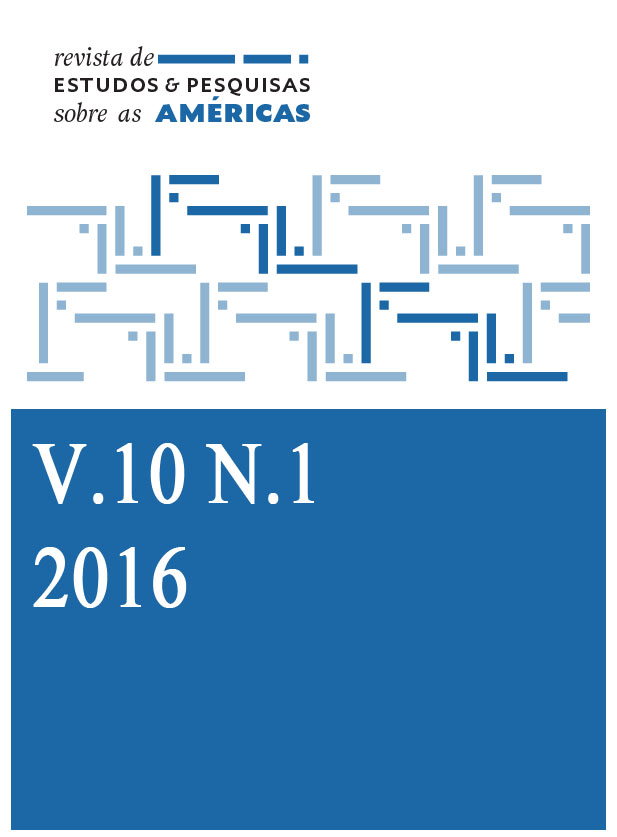Segregações Judiciais através do Auxílio-Reclusão: regulação, emancipação e cruel compaixão nas decisões dos tribunais regionais federais
Abstract
Resumo:
 A pesquisa aborda a tensão entre perspectivas civilizatórias da proteção social e práticas potencializadoras de segregação e exclusão, ambas mediadas pela atuação de instâncias judiciárias. O corpus de análise se constitui de decisões prolatadas nos cinco Tribunais Regionais Federais (TRF) brasileiros, no período janeiro de 2007 a dezembro de 2012, versando sobre o critério “baixa renda” como requisito para a concessão do instituto previdenciário do Auxílio-Reclusão. Trata-se de ponto de divergência jurisprudencial aparentemente superado (em face de decisão do Supremo Tribunal Federal [STF] em 2009) mas revelador de conteúdos argumentativos e retóricos, bem como de dinâmicas institucionais que evidenciam limites e possibilidades do Poder Judiciário em contribuir com uma cultura jurídica democrática e humano-dignificante. Como referenciais privilegiou a Teoria da Argumentação Jurídica (Luiz Alberto Warat), as perspectivas da sociologia do Campo Jurídico (Pierre Bourdieu) e as noções de regulação e emancipação (Boaventura de Sousa Santos). Os resultados preliminares já permitem se reconhecer, entre outras emergências, fragilizações na capacidade das instâncias judiciais efetivarem tutelas sustentadas no princípio da solidariedade social. Tais fragilizações criam perversas armadilhas, dentre as quais uma cruel compaixão, que transmuta direito em caridade.
Palavras Chave: Auxílio-Reclusão; Representações Judiciais; Sensibilidades Jurídicas; Proteção social; questão penitenciária.
 ***
Resumen:
La investigación se ocupa de la tensión entre las perspectivas civilizadoras de la protección social y las prácticas de segregación y exclusión, cuando mediadas por la acción de los órganos judiciales. El corpus de análisis se compone de las sentencias dictadas en los cinco Tribunales Regionales Federales (TRF) brasileños en el período de enero 2007 a diciembre 2012 , que trata del criterio de "bajos ingresos " como requisito para la concesión de prestaciones de seguridad social en situaciones de encarcelamiento. A través del análisis de la divergencia jurisprudencial se investigan las prácticas argumentativas e institucionales que revelan los límites y posibilidades de los tribunales para contribuir a una cultura jurí
 dica democrática y la dignidad humana. Los resultados preliminares ya permiten reconocer dificultades de los órganos judiciales en tutelar el principio de la solidaridad social.
Palabras-clave: Ayuda-prision; Representaciones judiciales; Sensibilidad jurídica; protección social; Cuestión penitenciaria
 ***
Abstract:
 The research is focused on the tension between the civilizing perspectives of social protection and segregation and exclusion practices when mediated by the action of the courts . They are studied judgments of the five Regional Federal Courts (TRF ) Brazil , from January 2007 to December 2012, about the criterion of " low-income " as a condition for the granting of social security benefits in prison situations. Through jurisprudential divergence argumentative and institutional practices are observed revealing the limits and possibilities of the courts to contribute to a democratic legal culture and human dignity. The preliminary results allow us to recognize the difficulties of the judicial system to protect the principle of social solidarity.
Keywords ”“ Imprisonment-relief; judicial reasoning; legal sensibility; social protection; Prison question
Downloads
Downloads
Published
How to Cite
Issue
Section
License
The published material is the property of the Journal, and may be reproduced in whole or in part with indication of the source.
Copyright: Authors will be responsible for obtaining the copyright of the material used. Authors who publish in this journal agree to the following terms:
a)Authors retain the copyright and grant the journal the right of first publication, with the work simultaneously licensed under
the Creative Commons Attribution License which allows the sharing of work with acknowledgment of authorship and initial publication in this journal.
b) Authors are authorized to take additional contracts separately, for non-exclusive distribution of the version of the work published in this journal (eg, publish in institutional repository or as a book chapter), with acknowledgment of authorship and initial publication in this journal.
c) Authors are allowed and encouraged to publish and distribute their work online (eg in institutional repositories or on their personal page) at any point before or during the editorial process, as this can generate productive changes as well as increase the impact and the citation of the published work (See The Effect of Free Access).
















